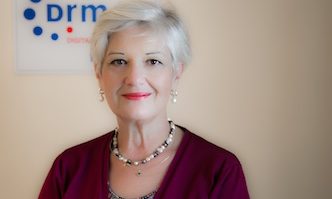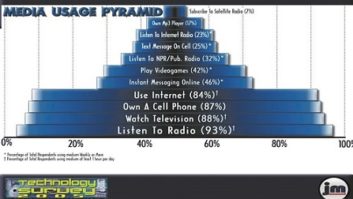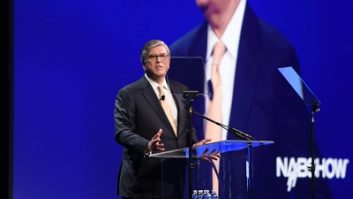NEW YORK While some terrestrial broadcasters are quickly seizing podcasting opportunities as a means to reach more listeners, other groups are viewing developments surrounding the latest high-tech delivery trend with a bit more skepticism.
Podcasting allows listeners to download their favorite programs to their computers and then transfer programs to iPods or similar MP3-format music players.
The early radio adopters say listener demand to create a unique listening choice is driving stations to react quickly despite uncertainty over podcast licensing. Holdouts cite a lack of customer demand among the reasons for their decision to delay implementation.
Recent announcements by Clear Channel and Infinity to incorporate podcast capabilities into their operations are an indication that traditional broadcasters are moving ahead with plans to use podcasting as a supplemental tool to reach listeners, analysts say.
Managing the pods
Michael Leventhal, an attorney who specializes in entertainment and new media, said it’s just a matter of time before most major groups launch podcasting efforts to help reach the coveted young adult demographic.
“I’m not sure if (broadcasters) know exactly how it will work, but they have to be in the field. If it does work, the company who has done it the longest will have the most experience,” Leventhal said.
“As it is with any technology-driven product, they often fail for reasons that are not about the concept, but because no one knew how to manage it.”
Leventhal said he expects news and talk radio stations to benefit most from podcasting, because providing music programming is fraught with all kinds of rights issues.
“The last thing broadcasters want to do is put capital at risk by violating some rule within the intellectual property realm. They’ll have to figure out how not to get sued by the RIAA,” Leventhal said, referring to the Recording Industry Association of America.
Leventhal envisions an “advertiser supported” business model for broadcasters, but doesn’t rule out a hybrid of some sort, combining subscription fees and advertising.
“Since radio programming has always been considered free, it may be a tough sell to have people pay for it. That depends on what potential customers portend the convenience to be worth,” Leventhal said.
Infinity Broadcasting has been an early podcast adopter. The Viacom-owned broadcast group launched the “world’s first podcasting radio station” in May, called KYOURADIO.COM. The station features content submitted by podcasters and aired on KYCY(AM) in San Francisco.
Infinity Broadcasting Chairman/CEO Joel Hollander said in the announcement, “We are increasingly living in an on-demand world, where listeners want to receive their content via alternative means. Podcasting is a perfect compliment to our business model.”
Infinity’s nine all-news stations planned to begin offering free daily podcasts of news, sports, entertainment and business headlines this month.
“The goal is to give our radio stations new and additional ways to connect with listeners,” said Harvey Nagler, CBS News vice president for radio.
Clear Channel Radio began its podcasting initiative in March, said Jeff Littlejohn, vice president of distribution development.
Low costs
“As content producers, we need to do our best to fulfill the needs of our listeners,” Littlejohn said, “and make content available by any means possible.”
That includes AM, FM, streaming, cellular phone and podcasting, he said. Cost for implementing podcasting is not much of a consideration.
“It’s actually quite inexpensive. A digital audio workstation, some software and your Web site is all you need to get started,” Littlejohn said.
Premiere Radio Networks, syndication arm of Clear Channel, is delivering podcasts of the “Rush Limbaugh Show” and other syndicated programming like “Bob & Tom” and “Coast-To-Coast.”
Clear Channel unveiled podcasts of features from WHTZ(FM) in New York earlier this summer and plans to expand that service to other markets throughout the year, Littlejohn said.
Meanwhile, three podcast business models are being considered by Clear Channel, Littlejohn said. “A subscription service, give it away with commercials or just give it away as a listener benefit that further strengthens the connections with listeners.”
Even though some broadcasters are sitting out, the prevailing sense is that podcasting eventually will be successful, said several observers.
National Public Radio is providing podcasts of selected shows and even the BBC has said it will eventually distribute more than 20 of its programs as podcasts.
Some individual non-commercial stations are experimenting with podcasting, such as KQED(FM) in San Francisco.
Emmis Radio President Rick Cummings said it’s “becoming most likely” that the group will begin podcasting.
“We do not feel compelled to be first with this stuff. It’s why we still aren’t offering, to any degree, the ability to buy music on our Web sites or text messaging yet. When we do offer (podcasting) we want it to be the most logical offering for us and our audience,” Cummings said.
Gregg Lindahl, vice president of Cox Radio Interactive, said, “Listener demand for podcasting still has yet to catch up with the ‘podcasting hysteria’ that the mainstream press is reporting. Our listeners are not clamoring for it. However, we believe that creating additional publishing platforms allows our listeners to hear our product in a number of ways.”
Lindahl said when Cox Radio decides to add podcasting, using RRS (Really Simple Syndication), it will be a relatively simple process.
Talk works
“We are already audio archiving through a number of our Web sites. We have strong brands in our local markets and eventually (podcasting) will likely be important to the overall success of the stations,” Lindahl said
Cox Radio expects to run several subscription-based podcast tests around the country this year, Lindahl said.
Greater Media Vice President of Engineering Milford Smith said, “Greater Media is closely following developments in the podcasting area, but has yet to decide to commence podcasting at any of our stations.” Smith noted that the vast majority of Greater Media’s stations are music-oriented formats “without a lot of content that would be optimal for a podcasting situation, ” he said.
“We will certainly initiate the service when it makes sense to do so.”
Journal Broadcast Group has a major Internet effort under but doesn’t expect to be podcasting anytime soon, said Andy Laird, the 38-station group’s chief technology officer.
“We have a number of things we want to do in the next 12 months, but podcasting is more at the bottom of the list at this time,” Laird said.












